HPV, Cervical Cancer
What is HPV?
HPV (Human Papilloma Virus) is a common virus passed on via genital contact. There are more than 100 HPV types and they infect genital areas. Sometimes they cause no harm and the infection can go away on its own. However, sometimes the virus persists and can cause cells to change this can lead to:
• Cancer of the cervix, vulva and vagina in women
• Precancerous lesions in men and women
• Genital warts in men and women
• Head and neck cancers in men and women
HPV vaccines have a well-established role in preventing cervical cancers as well as these other conditions.
What do HPV vaccines do?
HPV vaccines are a vitally important medical advance and are the first vaccines to help protect against a major cause of cancer.
The newest HPV vaccine Gardasil 9 supercedes the original Gardasil vaccine (called Gardasil). We are currently moving to stock the Gardasil 9 vaccine but will be able to supply both.
Gardasil 9 protects against infection with HPV types 6, 11, 16, 18, 31, 33, 45, 52 and 58.
HPV vaccines may not protect against HPV types to which you have already been exposed.
Who should be vaccinated against HPV?
Vaccine protection is important for males and females. In theory, HPV vaccines are best given to young people before they become sexually active, i.e. before they can be exposed to HPV. Those already sexually active might also benefit as they may not yet have acquired all of the HPV strains covered by the vaccine so may still get useful protection from the vaccine. Most people are not infected with many HPV strains.
Patients aged under 16 can only be vaccinated with their parents present.
For families and groups, we are sometimes able to arrange home visits for HPV vaccination please contact us for further information.
Who should not receive the vaccine?
• People allergic to vaccine ingredients
• People who have has an allergic reaction to a previous dose of the HPV vaccine
• Pregnant women
• People taking certain medicines (please ask for advice at time of vaccination)
Possible side effects of the HPV vaccine
The vaccine is usually well tolerated. The most likely side effects include pain, itching, swelling at the injection site, fever, nausea, and dizziness.
How is the HPV Vaccine given?
You will require a total of 3 injections, at the following minimum intervals:
• Initial dose
• Second dose: 2 months later
• Third dose: 4 months after the second dose
HPV Vaccine Cost
All patients are required to have a GP appointment for the first dose which is TBC for the vaccine. The following two doses can be administered by the nurse and each cost
Families attending together pay a single appointment fee.
Other Important Points
The length of vaccine protection is not yet known. To date, research shows that it protects for at least 5 years. It is possible that a booster may be needed at some point in the future, to maintain protection. Girls and women who have been vaccinated will still need regular cervical cancer screening “ this is because the vaccine does not protect against ALL types of HPV.
Are there any other ways to prevent HPV?
The only sure way to prevent HPV is to abstain from sexual activity. Sexually active adults can reduce their risk by limiting their number of sex partners and using condoms. Even people with only one partner can get HPV if their partner has been exposed to a previous partner with HPV. This is why HPV Vaccine represents such an important medical advance.
To Book
For further details and appointments, call Highcliffe Clinic on 01425 540214 , email us at [email protected].
Further Information
For more information about the HPV, Cervical Cancer Vaccine, please click here



